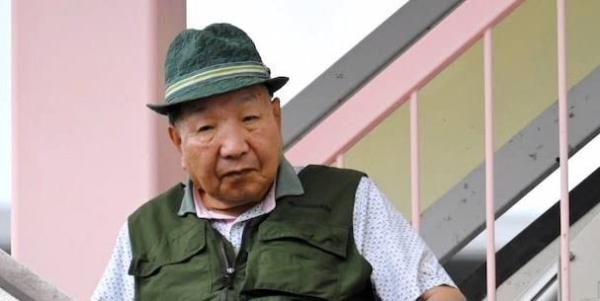An 88-year-old Japanese man, Iwao Hakamada, has been found not guilty of multiple murders after spending almost five decades on death row.
The case that has sparked intense scrutiny of Japan’s death penalty practices sees Hakamada sentenced to death by hanging in 1968 for the murders of his boss, his boss’s wife, and their two teenage children, as well as for setting their home ablaze two years earlier.
His time on death row, lasting 46 years, is believed to be the longest for any prisoner worldwide, ending in 2014 when new evidence led to a retrial, The Guardian UK reports.
Hakamada has consistently maintained his innocence, claiming that investigators coerced him into confessing, while his lawyers argued that evidence was fabricated by the police.
Following the verdict, there was no immediate announcement regarding a potential appeal by prosecutors, according to Kyodo news agency and other media outlets. Hakamada’s defence team has urged prosecutors not to challenge the ruling, citing his age.
Koshi Kunii, the presiding judge at Shizuoka district court, confirmed that three pieces of evidence were fabricated, including Hakamada’s “confession” and clothing that prosecutors claimed he wore during the murders.
His sister, 91-year-old Hideko Hakamada, who has tirelessly advocated for her brother, expressed hope before the ruling: “For so long we have fought a battle that has felt endless. But this time, I believe it will be settled.”
While prosecutors sought the death penalty once more, legal experts suggested that Hakamada was likely to be acquitted, referencing four other postwar retrials in Japan that resulted in overturned convictions for death row inmates.
Hakamada, who experienced significant physical and mental decline during his incarceration, was absent from the courtroom during the ruling and was represented by his sister.
The case’s outcome depended heavily on the credibility of bloodstained clothes that prosecutors claimed Hakamada wore at a miso factory where he worked as a live-in employee.
In March 2023, after prolonged legal battles, the Tokyo high court ordered a retrial, indicating the strong likelihood that the clothing had been planted by investigators. Defence lawyers contended that DNA tests on the clothing confirmed the blood did not belong to Hakamada.
Initially, the high court chose not to reopen Hakamada’s case, a focal point for opponents of the death penalty, but reversed this decision following a Supreme Court order to reconsider it in 2020.
On the day of the ruling, hundreds lined up outside the district court in hopes of securing a seat, with supporters holding banners demanding Hakamada's acquittal.
Initially denying involvement in the crimes, Hakamada later confessed after what he described as a brutal police interrogation involving physical abuse. His case has been highlighted as an example of the flaws within Japan’s criminal justice system and the cruelty inherent in capital punishment.
In Japan, one of only two G7 countries that retains the death penalty alongside the US, inmates are notified of their execution just hours in advance and are denied the opportunity to consult with their lawyers or families. Their final discussions typically occur with a Buddhist priest.
Boram Jang, an East Asia researcher at Amnesty International, expressed joy at the ruling: “We are overjoyed by the court’s decision to exonerate Iwao Hakamada.”


